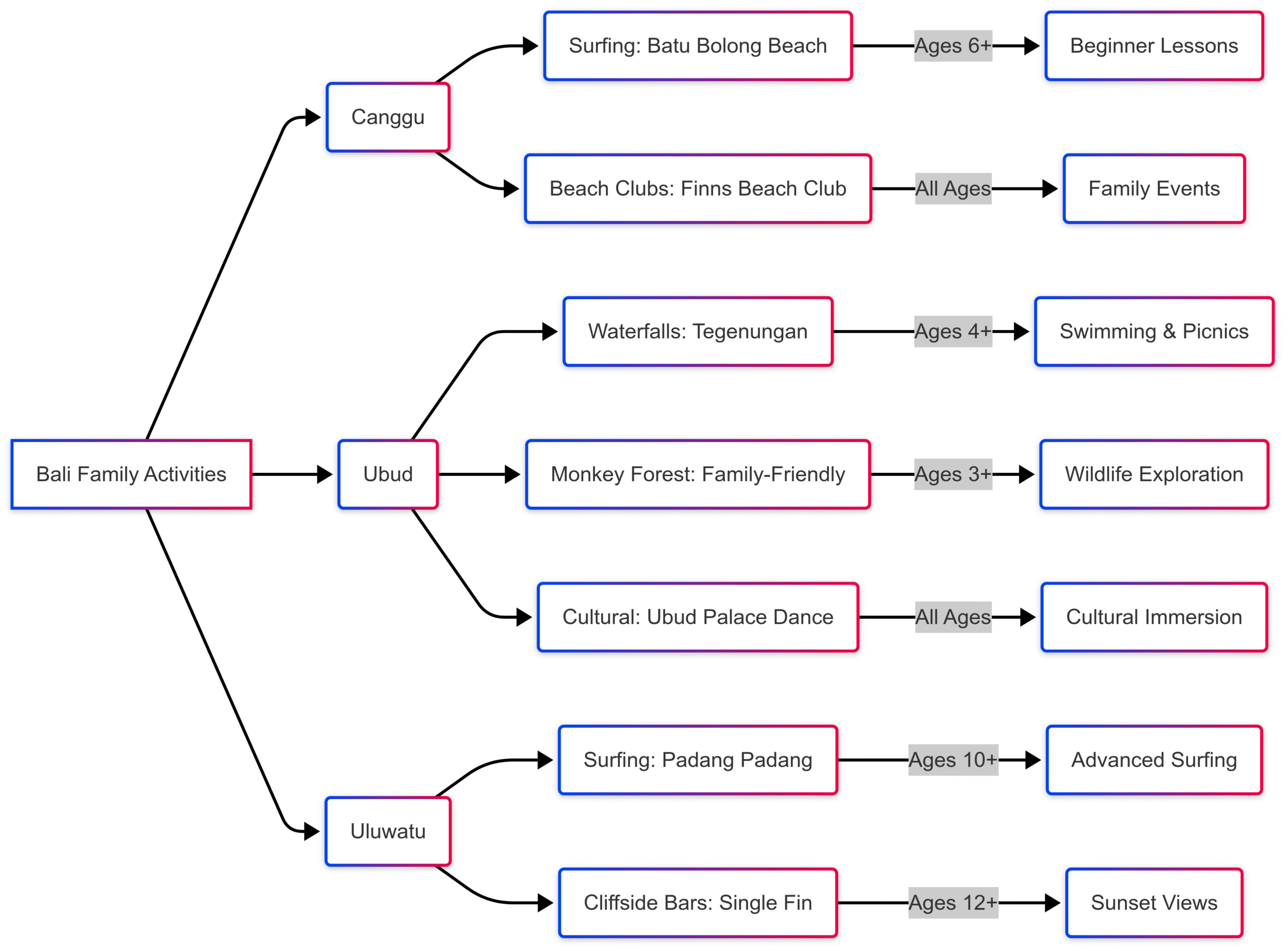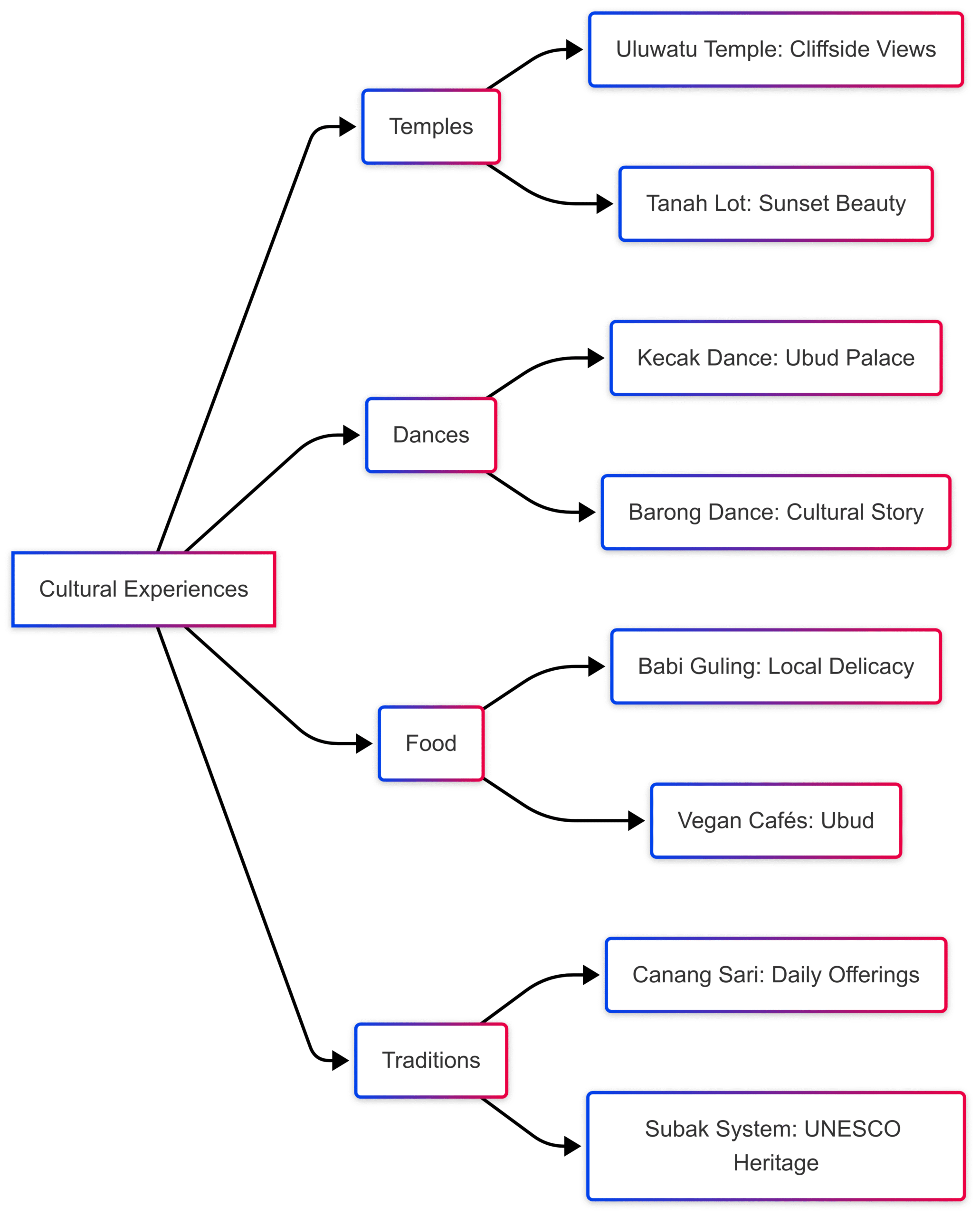Discover why Bali is a paradise for digital nomad families with affordable living, stunning scenery, and a vibrant community in this guide.
Bali, often called the Island of the Gods, has transformed from a bucket-list tourist destination into a global hub for digital nomad families. Its unique blend of affordability, natural beauty, welcoming culture, and robust infrastructure makes it an ideal base for remote-working parents and their children. Whether you’re drawn to the vibrant surf scene of Canggu, the serene wellness vibe of Ubud, or the laid-back cliffs of Uluwatu, Bali offers a lifestyle that balances work, family, and adventure. This comprehensive guide explores five key reasons why digital nomad families are flocking to Bali, supported by practical insights, cost breakdowns, and tips for thriving on the island.
1. Affordable Cost of Living for Families
One of Bali’s biggest draws for digital nomad families is its low cost of living compared to Western countries. Families can maintain a comfortable lifestyle without breaking the bank, allowing them to prioritize experiences over expenses.
Monthly Budget Breakdown for a Family of Four
A mid-range budget for a family of four in Bali typically ranges from $2,500 to $3,500 per month, depending on lifestyle choices. Here’s a detailed breakdown based on current market trends:
| Category | Cost (USD) | Details |
|---|---|---|
| Accommodation | $1,000–$1,500 | A 2-bedroom villa or apartment with a pool in areas like Canggu or Ubud. |
| Food & Dining | $600–$800 | Mix of local warung meals ($2–$5) and Western-style dining ($10–$15/meal). |
| Co-working Space | $200–$350 | Unlimited monthly access for one parent (e.g., Dojo Bali or Outpost Ubud). |
| Transport | $200–$300 | Scooter rentals for two adults, including fuel. |
| Utilities & Internet | $150–$250 | Electricity, high-speed internet, and weekly cleaning services. |
| Entertainment & Activities | $350–$600 | Family outings, yoga classes, surf lessons, and cultural experiences. |
| Total | $2,500–$3,800 | Varies based on dining preferences and activity frequency. |
Tips for Saving Money
- Eat Local: Warungs (local eateries) offer delicious Balinese meals like nasi goreng for $1–$2, significantly cheaper than Western restaurants.
- Long-Term Rentals: Renting a villa or apartment for a month or longer reduces accommodation costs by 20–30%.
- Scooter Travel: Scooters are the most cost-effective way to navigate Bali, with rentals costing $50–$80/month.
By embracing local dining and securing long-term rentals, families can live comfortably on a budget as low as $2,000/month, making Bali an attractive alternative to expensive urban centers in the West.
2. Stunning Scenery and Family-Friendly Outdoor Activities
Bali’s natural beauty is a major reason digital nomad families choose the island. From pristine beaches to lush rice fields and volcanic landscapes, the island offers endless opportunities for exploration and adventure.
Diverse Landscapes for Family Adventures
- Beaches: Canggu’s Batu Bolong and Echo Beach are perfect for beginner surfers, while Uluwatu’s Padang Padang offers world-class waves for experienced surfers. Families can enjoy swimming, sandcastle building, or simply relaxing by the shore.
- Waterfalls: Tegenungan Waterfall near Ubud is a family-friendly spot for a refreshing dip, while Sekumpul Waterfall offers a more adventurous trek for older kids.
- Hiking: The Campuhan Ridge Walk in Ubud provides stunning views of rice fields and hills, suitable for families with children of all ages.
- Wildlife: The Sacred Monkey Forest in Ubud is a hit with kids, offering a chance to see playful monkeys in a lush jungle setting. However, keep electronics and snacks secure, as monkeys are known to snatch items!
Water Sports and Activities
Bali’s coastal areas are a paradise for water-based activities, appealing to both thrill-seekers and families looking for fun. Popular options include:
- Surfing: Lessons start at $20–$30/hour, with kid-friendly instructors available.
- Scuba Diving and Snorkeling: Bali’s coral reefs are ideal for underwater exploration, with family packages starting at $50/person.
- Kayaking and Rafting: Family-friendly rafting tours on the Ayung River cost around $35–$50/person.
- Parasailing and Jet Skiing: Available in tourist hubs like Nusa Dua, with prices ranging from $25–$50 for short sessions.
Chart: Bali’s Top Family-Friendly Activities
Below is a visual representation of popular family activities in Bali, categorized by location and suitability.

This diversity ensures that families of all ages can find activities to suit their interests, making Bali a playground for adventure and relaxation.
3. Welcoming Locals and a Thriving Expat Community
Bali’s warm hospitality and vibrant expat community create a supportive environment for digital nomad families. The Balinese are known for their friendliness, especially toward children, making the island feel like a home away from home.
Balinese Hospitality
The Balinese culture emphasizes respect and community, with locals often going out of their way to make visitors feel welcome. Simple gestures like learning basic Bahasa Indonesia phrases—such as “Terima kasih” (thank you) or “Selamat pagi” (good morning)—can foster meaningful connections. Families are often invited to participate in local ceremonies, such as temple festivals, which are both educational and bonding experiences for kids.
Expat Community Support
Bali’s expat community, particularly in areas like Canggu, Ubud, and Uluwatu, is a lifeline for digital nomad families. With thousands of remote workers and families relocating to the island, there’s a strong sense of camaraderie. Key ways to connect include:
- Co-working Events: Spaces like Dojo Bali (Canggu) and Outpost Ubud host workshops, networking events, and family-friendly activities.
- Facebook Groups: Popular groups like Bali Digital Nomads (10,000+ members) and Bali Expats (20,000+ members) offer tips on housing, schools, and events.
- Local Gatherings: Weekly meetups, such as beach cleanups or yoga workshops, provide opportunities to build friendships and professional networks.
This community support helps families navigate challenges like finding international schools, securing reliable childcare, or organizing playdates, ensuring a smooth transition to life in Bali.
4. Family-Friendly Amenities and Infrastructure
Bali’s infrastructure caters to the needs of digital nomad families, offering everything from high-speed internet to international schools and quality healthcare. These amenities make it easy to balance work and family life.
Co-working Spaces
Bali’s co-working scene is world-class, with spaces designed for productivity and community. Notable options include:
- Dojo Bali (Canggu): Located near Echo Beach, it offers 24/7 access, high-speed Wi-Fi, and community events. Monthly unlimited access costs $189–$250.
- Outpost Ubud: Set in a lush jungle, it’s ideal for creatives. Prices range from $200–$320/month.
- Uluwatu Hub: A cozy space for remote workers, with memberships starting at $150/month.
These spaces often provide childcare or family-friendly events, allowing parents to work while kids are engaged.
International Schools
Bali has a range of international schools catering to expat families, with curricula like IB, British, or Montessori. Popular options include:
- Green School (Ubud): Known for its eco-friendly approach, with annual fees of $10,000–$15,000 per child.
- Canggu Community School: Offers a British curriculum, with fees around $8,000–$12,000/year.
- Montessori School Bali: Ideal for younger children, with fees starting at $6,000/year.
Healthcare
Bali’s private hospitals, such as BIMC Siloam (Kuta) and Kasih Ibu (Denpasar), offer high-quality care with English-speaking staff. A general consultation costs $20–$50, while minor procedures range from $100–$500. Comprehensive medical insurance is recommended for long-term stays, as public facilities are limited. For complex medical needs, Singapore’s hospitals are a 2.5-hour flight away.
Internet and Connectivity
Reliable Wi-Fi is critical for digital nomads. Most co-working spaces and cafés offer speeds of 50–100 Mbps. Local SIM cards from Telkomsel or XL provide 4G/5G data for $5–$10/month, ensuring connectivity even in remote areas.
5. Rich Cultural Experiences for Families
Bali’s vibrant culture, rooted in Hinduism and local traditions, offers digital nomad families a chance to immerse themselves in a unique way of life. From temples to traditional dances, the island provides endless opportunities for cultural enrichment.
Cultural Highlights
- Temples: Visit iconic sites like Uluwatu Temple or Tanah Lot, where kids can learn about Balinese spirituality. Entry fees are $2–$5/person.
- Traditional Dances: Ubud Palace hosts nightly performances of dances like Kecak or Barong, costing $7–$10/ticket.
- Canang Sari: Daily offerings of flowers and incense are a beautiful way to introduce kids to Balinese rituals.
- Subak System: This UNESCO World Heritage irrigation system showcases Bali’s agricultural heritage, with guided tours available for $15–$25.
Food and Culinary Experiences
Bali’s food scene is a delight for families, catering to diverse tastes:
- Babi Guling: A roasted pig dish flavored with base gede (spicy paste), costing $5–$10 at local warungs.
- Vegan Options: Ubud’s vegan cafés like Zest and Sayuri offer fresh salads and smoothies for $3–$8.
- Pasar Malam (Night Markets): Family-friendly markets serve affordable street food, with meals starting at $1–$3.
To avoid “Bali Belly” (traveler’s diarrhea), stick to bottled water, avoid ice in drinks, and ensure food is cooked fresh. Many restaurants cater to kids with familiar options like pizza or pasta.
Chart: Cultural Immersion Opportunities
This chart outlines key cultural experiences for families in Bali.

Navigating Life as a Digital Nomad Family in Bali
Visa Options
Indonesia’s E33G Digital Nomad Visa allows families to stay for up to one year, renewable annually, with no local taxes on foreign-earned income. The application process, handled through partners like ILA Global Consulting, costs $150–$300 in fees. This visa is ideal for remote workers employed by international companies or freelancers serving global clients.
Practical Tips
- Connectivity: Purchase a local SIM card for affordable data (e.g., Telkomsel’s 20GB for $10/month).
- Traffic: Avoid peak hours (4–6 PM) to navigate Bali’s busy roads safely.
- Respect Local Customs: Dress modestly at temples and participate respectfully in ceremonies.
- Support Local Businesses: Order meals at cafés when using their Wi-Fi and tip generously (5–10%).
Real Estate Opportunities
Bali’s real estate market is booming, with a 4.9% price increase in 2024 (REID 2024 Annual Market Report). Small apartments and villas are ideal for digital nomad families, offering flexibility and high rental yields. Leasehold properties, which dominate 77.7% of transactions, are popular for their affordability. A one-bedroom apartment in Canggu costs $80,000–$150,000, with rental yields of 8–12% annually.
Why Bali Stands Out for Digital Nomad Families
Bali’s appeal lies in its ability to blend affordability, natural beauty, and community support into a lifestyle that feels like a permanent vacation. For families, the island offers a rare opportunity to work remotely while raising children in a culturally rich, adventure-filled environment. From surfing in Canggu to exploring temples in Ubud, Bali provides a balance of productivity and play that few destinations can match. Whether you’re renting a villa, joining a co-working space, or immersing yourself in Balinese culture, the Island of the Gods delivers a life that’s as fulfilling as it is affordable.
For families ready to take the leap, resources like Boundless Life and Nomad Stays offer tailored support, from accommodation to community connections. Bali isn’t just a destination—it’s a lifestyle that digital nomad families will love.
Please share this 5 Reasons Why Digital Nomad Families will LOVE Bali! with your friends and do a comment below about your feedback.
We will meet you on next article.
Until you can read, Digital Nomad’s Guide to Puntarenas, Costa Rica
